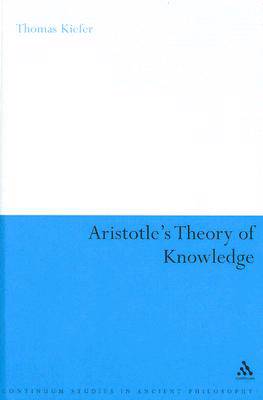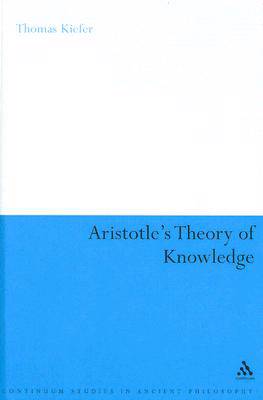
- Retrait gratuit dans votre magasin Club
- 7.000.000 titres dans notre catalogue
- Payer en toute sécurité
- Toujours un magasin près de chez vous
- Retrait gratuit dans votre magasin Club
- 7.000.0000 titres dans notre catalogue
- Payer en toute sécurité
- Toujours un magasin près de chez vous
Description
Nominated for the 2009 American Philosophical Association Book Prize.
The work of Aristotle (384-322 bc) is considered to be one of the great achievements of the ancient world, and is a foundation of both Western and Middle Eastern philosophy and science. Although Aristotle left significant material on almost all branches of learning, what has survived is a somewhat disorganized collection of notes and lectures. Moreover, the centuries of interpretation across various epochs and cultures tend to cloud our understanding of him. Thomas Kiefer breaks through this cloud of interpretation and provides an organized account of one key part of Aristotle's philosophy, namely his theory of knowledge. This theory concerns what is knowledge, what we can know, and how we can do so. Kiefer's book is the first work that takes this theory as its sole focus and reconstructs it systematically. Kiefer's work throughout provides many new interpretations of key parts of Aristotle's philosophy, including an unnoticed -but crucial- distinction between knowledge in general and knowledge for us, the differences between his semantic and psychological requirements for knowledge, and 'nous', which is perhaps the most obscure notion in Aristotle's work. He also concludes with a summary of Aristotle's theory in the terms and style of contemporary epistemology. Kiefer's work should be of interest to anyone involved in the history of philosophy or contemporary epistemology.Spécifications
Parties prenantes
- Auteur(s) :
- Editeur:
Contenu
- Nombre de pages :
- 256
- Langue:
- Anglais
- Collection :
- Tome:
- n° 4
Caractéristiques
- EAN:
- 9780826494856
- Date de parution :
- 28-08-07
- Format:
- Livre relié
- Format numérique:
- Genaaid
- Dimensions :
- 165 mm x 235 mm
- Poids :
- 548 g

Les avis
Nous publions uniquement les avis qui respectent les conditions requises. Consultez nos conditions pour les avis.






